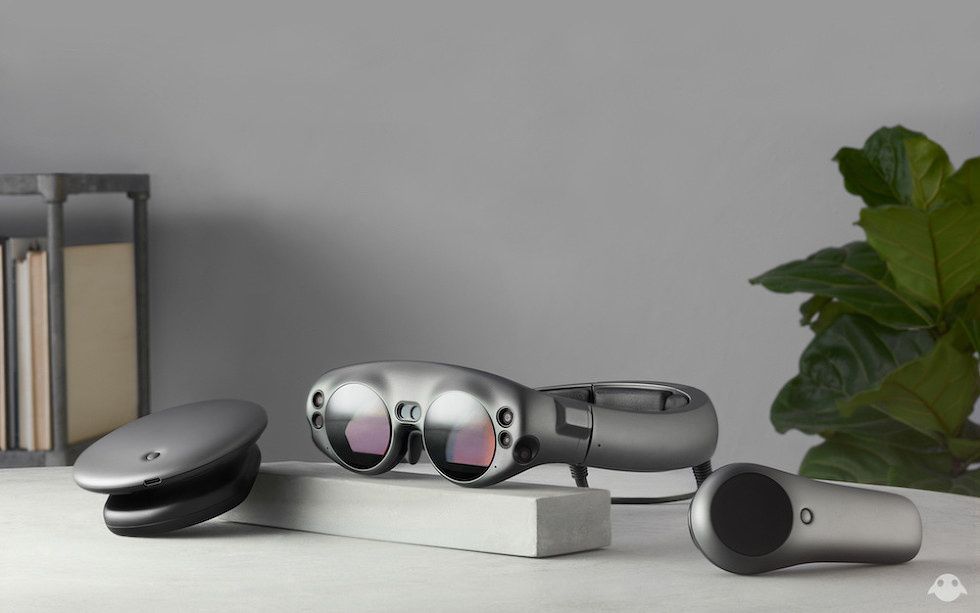Magic Leap price partially revealed as NBA content is promised at launch
Secretive startup Magic Leap has partially revealed how much its next-generation augmented reality headset will cost when it goes on sale at some point later this year - but as ever, the details remain sketchy.
Applying digital interfaces and animations to the wearer's view of the real world, Magic Leap's technology has been kept a closely guarded secret since its formation in 2010, but despite this the company has earned almost $2bn in funding from the likes of Google, Alibaba and Axel Springer.
During an interview at the Recode Code Media conference this week, Magic Leap chief executive Rony Abovitz said he expects the headset to be priced like a "premium computer", before suggesting there will be several variants of headset and that the cheapest will cost around the price of a high-end smartphone, like the $1000 iPhone X.
"[Magic Leap] is a premium computer, so I would think of [pricing] that way," Abovitz said, adding that the company's first headset, the Magic Leap One, is "prosumer-ish, and then we'll have even higher-end for, like, hyper-pro, and then we'll have, like, a wide mass market [headset]".
When asked if $200 to $300 would be considered a mass-market price, Abovitz said no, before adding that Magic Leap is "like...think higher-end mobile phone to higher-end tablet zone". This area of the market was then described as their "floor" price.
To justify the high cost, Abovitz suggested that Magic Leap could one day replace a consumer's smartphone and computer, as it would be able to handle both user interfaces and project what the wearer needed of each into their field of view. He said that, by the second of third generation, Magic Leap headsets will replace "a whole suite of consumer electronics."
Speaking specifically about the Magic Leap One, which was revealed for the first time in December last year, Abovitz said it is "for people who are enthusiasts, developers, creators, brands, artists...people that want to get an early taste of what the future looks like...It's not necessarily for everyone right away".
Microsoft is taking a similar approach with its own augmented reality headset, the HoloLens, which can be purchased by developers now for $3,000.
At the same event on February 13 it was revealed that Magic Leap is partnering with the NBA. This will allow Magic Leap wearers to watch NBA content through the glasses, either in front of them as they walk around, or by pinning videos to objects around them. For example, they could find a classic game from the NBA archives and pin it to the wall like a projector screen.
Although live content won't be available at launch, the hope is to one day watch a live basketball game, in 3D, right in front of your eyes through the Magic Leap, bringing the players into your living room or wherever you are.
Jeff Marsilio, senior vice president of global media distributors at NBA, said at the conference: "Eventually, the game could be available streaming on your coffee table as though you were a giant looking into the arena from above. Those are some ideas, those are things that we're working towards. [They are] not quite ready but actually more possible than you might think."
